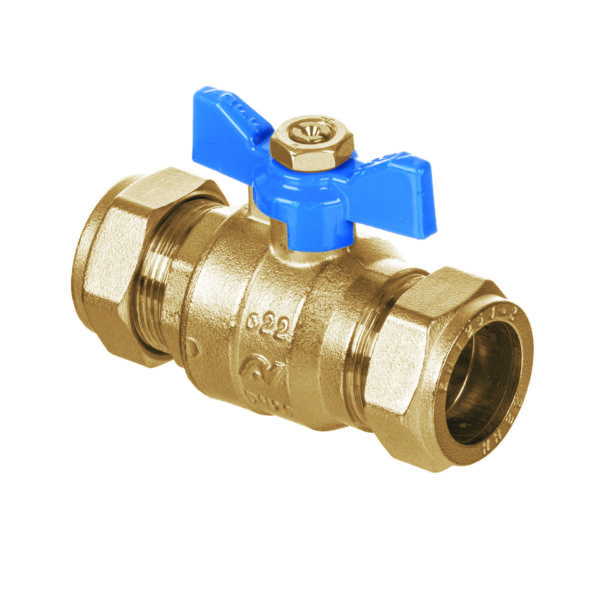The Importance of DZR
DZR and Dezincification
DZR (Dezincification Resistant) or DR Brass is a type of brass used for manufacturing, which gives resistance to dezincification corrosion. Products that offer Dezincification Resistant properties will often be marked with the "DR" mark.
Brass is a widely used metal alloy, made of copper and zinc. In certain circumstances, when exposed to certain combinations of pH and concentrations of chlorides it can experience a severe form of corrosion known as dezincification. This is where the zinc dissolves out of the brass, weakening and compromising the mechanical properties of the alloy.
In relation to HVAC applications, dezincification can result in system failure by causing leaks, blockages or even ruptures. It is therefore rightfully a major consideration when it comes to system design.
When Do I Need to Be Concerned About Dezincification?
In the UK, it is mandatory for fittings that are going underground to be dezincification resistant.
Potable water is unlikely to cause dezincification, but if it is capable, or where distribution systems might introduce fluids that may cause dezincification, you should use DZR fittings. If you are unsure, advice can be sought from your local water authority to understand if you need to consider specialised components for your project.
Manufacturing Process
Products made from DZR require special attention in how they are manufactured to ensure the quality of these products is maintained and the Brass is made anti-corrosive.
Although there are a number of materials, such as Copper and Bronze, that are resistant to dezincification, Brass is the most practical material. This is because Brass can be produced in high volumes however, Brass, as it is made from Zinc and Copper, is not dezincification resistant alone.
The controlled addition of quantities of elements such as Arsenic and Antimony allow a copper alloy to be made and inhibit the selective dissolution of zinc caused by contact with water. When manufacturing DZR Brass, the process also increases the strength of the brass along with its anti-corrosiv properties.
DZR Types
There are various types of DZR Brass available for a manufacturer to use in their products. Typically, DZR Brass must have a zinc content lower than 15% to avoid dezincification however, adding inhibitors allows for the Brass to have a higher zinc content. (The UK specifications state that Arsenic (0.02 – 0.15%) and Nickel (0% - 0.3%) are acceptable)
DZR Brass is available in CW602N, CW6265 or CW626N specifications for Brass rods with a lower content of zinc than standard Brass rods.
Key Products That Require DZR Brass
Due to its anti-corrosive nature, there is a wide range of products that the material can be used to manufacture. However, one of the most common uses of DZR Brass is to manufacture Ball Valves.
Ball Valves are used as a shut-off valve that controls the flow of a liquid, which can be corrosive, or gas by means of a rotary ball having a bore. They are used in the oil and natural
gas industry, but also find a place in many manufacturing sectors, chemical storage, and even residential uses.
Improving the Lifecycle of a System
Due to their use with liquids, gases, and often corrosive substances, it is highly beneficial for the Ball Valves to be manufactured from DZR Brass to ensure that they can be fitted for longer without risk of leakage.
Altecnic provides a range of Ball Valves, consisting of ‘Butterfly’ and ‘Lever’ handles, which come in DZR Brass. This means that DZR ball valves have a much reduced risk of failing or leaking. Ball valves manufactured using DZR are suitable for those installations where high aggressive water causes zinc leaching in the standard brass alloys and weakens the material molecular structure.
Overall, the manufacturing of products, such as Ball Valves, using DZR Brass allows for a system to increase its lifespan and reduce the risks that leakage (such as contamination) causes. Hence, it is key for Installers, or even Specifiers, to look for products, Ball Valves especially, which are made from DZR and WRAS approved to help both their customers and themselves.

